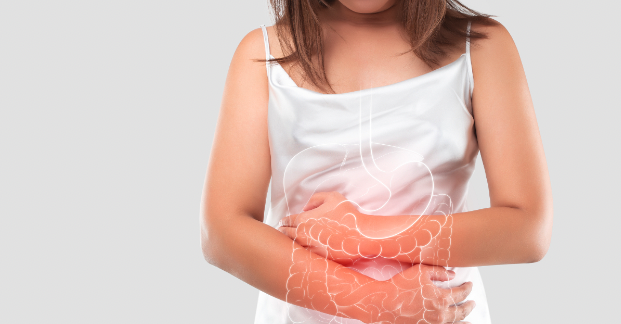7 Of The Most Common Digestive Diseases

Just about everyone from time to time will experience gastrointestinal distress, because the digestive system is responsible for so many things: breaking down food, absorbing nutrients, and eliminating waste products. However, like any other organ system in the body, it can be susceptible to disease. According to the National Institute of Diabetes and Digestive and Kidney Diseases (NIDDK), 60 to 70 million people are affected by digestive diseases.
Common Digestive Diseases
The most common symptoms associated with common digestive diseases include changes to stool, cramps, constipation, bloating, nausea, and vomiting. With the prevalence of digestive diseases, Birmingham Gastroenterology wants to ensure you are equipped with the right information regarding possible gastrointestinal problems.
1. Celiac Disease
Celiac disease is due to an abnormal immune system response, specifically involving the ingestion of gluten. Those with this disease may experience damage to the small intestine, leading to digestive symptoms such as diarrhea, abdominal pain, bloating, and the malabsorption of nutrients. To mitigate these symptoms, those with celiac disease should refrain from eating anything containing gluten. Some of the most common sources of gluten include bread, baked goods, pasta, and cereal.
2. Gastroesophageal Reflux Disease (GERD)
While some digestive diseases are due to the ingestion of certain foods, some may be triggered by a number of different foods or ingredients. GERD is a chronic condition in which stomach acid flows back into the esophagus, causing heartburn, acid reflux, and regurgitation. Those who experience the symptoms associated with GERD can opt for lifestyle changes or medications.
3. Irritable Bowel Syndrome (IBS)
Some digestive diseases, such as irritable bowel syndrome, are considered functional disorders, meaning there are no structural abnormalities within the digestive tract. However, those with IBS may experience symptoms such as diarrhea, constipation, abdominal pain, and bloating. Because the exact reason IBS develops is unclear, doctors may treat IBS by recommending changes in what you eat and other lifestyle changes or medications.
4. Gallstones
Gallstones are hardened deposits that form in the gallbladder. Gallstones can cause pain in the upper abdomen, back, or right shoulder. Symptoms of gallstones may include nausea, vomiting, and bloating. The most common treatment for gallstones is surgery to remove the gallbladder.
5. Pancreatitis
Pancreatitis is inflammation of the pancreas, often triggered by gallstones or excessive alcohol consumption. Pancreatitis can be acute or chronic and causes severe abdominal pain, nausea, vomiting, and digestive problems. John Hopkins Medicine suggests for digestive diseases such as pancreatitis, the treatment goal is to rest the pancreas and let it heal.
6. Peptic Ulcer Disease
Peptic ulcer disease is when ulcers develop in the lining of the stomach, upper small intestine, or esophagus. The most common cause of peptic ulcer disease is from a bacteria called Helicobacter pylori (H pylori). Common symptoms include abdominal pain, bloating, heartburn, and bleeding. Treatments may include antacids or other medications.
7. Hepatitis
Hepatitis is inflammation of the liver, most commonly caused by viral infections (hepatitis A, B, or C). Hepatitis can lead to fatigue, jaundice, abdominal pain, nausea, and in chronic cases, liver damage. To prevent this disease, it is important to get vaccinated. However, there is no vaccine for Hepatitis C, making avoiding behaviors that can spread the disease important, such as injecting drugs with non-sterile injection equipment and being cautious of other people’s blood.
If you are looking for ways to improve your gut health or digestion, Birmingham Gastroenterology can help. We have decades of experience treating diseases and disorders in all parts of the digestive system. To make an appointment to discuss your symptoms and treatment options or ask questions about common digestive diseases, call us at (205) 271-8000.

